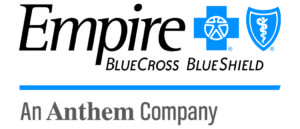CIR is tracking the conditions of our fellow interns, residents and fellows across the nation due to COVID-19. We understand that each hospital representing CIR housestaff has unique needs and encourage residents to reach out to your CIR hospital organizer to find out how to get involved in your hospital and community. CIR is committed to advocating for housestaff everywhere and continue to hold our institutions to higher standards of accountability during this crisis.
If you’re not sure who your organizer is, please email us at info@cirseiu.org and we’ll connect you to the right person.
To stay up-to-date on our coverage of COVID-19, sign up for our email here.
Dear ACGME and ABMS,
As you are likely aware, the Committee of Interns and Residents (CIR-SEIU) represents over 17,000 house staff across the nation. We continually strive to improve the working conditions of our members–truly all house staff–regardless of their status as union members. COVID-19 is a pandemic that will test the limits of our already strained healthcare system. This public health crisis also presents the opportunity to exemplify true leadership when it comes to supporting those on the frontline of this national emergency.
We at CIR are asking you to partner with us in addressing the needs of our frontline healthcare providers. As the accrediting body for graduate medical education, hospitals and programs will look to you for direction during this pandemic. We urge you to make statements and develop guidelines that are in the best interests of the 140,000 interns, residents and fellows across the nation, and ultimately in the best interest of the patients we are serving.
As it stands, neither the statement released by the ACGME on March 11, 2020 nor the statement released by the ABMS on March 13, 2020 sufficiently addresses the need for residency programs to provide protections for resident physicians in this time of increased work-related risk. Therefore, we urge you to mandate the following ten actions immediately in order to ensure that hospitals put measures in place that promote safe and healthy working conditions so that house staff can continue to care for the individuals and communities we serve:
- Require hospitals to include the needs of house staff when purchasing necessary personal protective equipment such as masks, respirators, gowns, gloves, etc.
- Instruct hospitals that under no circumstances should they force house staff to use our already limited personal, vacation, and/or sick time for leave due to COVID-19 exposure quarantine and/or illness. They should instead develop non-punitive leave policies that follow public health guidance.
- Instruct hospitals to provide paid leave time for COVID-19 exposure quarantine and/or illness and for anyone who is the caretaker of a person with COVID-19 illness.
- Require that hospitals adhere to a protocol that ensures minimizing the risk of exposure of house staff to patients under investigation (PUI) or COVID-19 confirmed patients.
- Ensure that resident physicians are appropriately working within their scope of practice and at the top of their licenses; by ensuring residents are not doing triage or nursing work we can maximize physician capacity in this time of crisis.
- Ensure that emergency childcare services and/or stipend are available for resident physicians who are parents affected by emergency school closure decisions.
- All house staff considered high risk due to older age, chronic medical conditions (e.g. heart disease, diabetes, lung disease, etc.), and/or pregnant or breastfeeding should receive an N95 mask to use at all times, regardless of direct contact with patients under investigation (PUI) or COVID-19 confirmed patients.
- Guarantee that any changes in rotation or missed time due to COVID-19 will not result in the extension of residency training.
- Direct hospitals and residency programs to provide temporary disability accommodations for house staff who are experiencing a partial or full relapse of psychiatric illness due to the stress of practicing in the current COVID-19 pandemic. This may include, but is not limited to flexible scheduling, non-punitive leave policy, modified break schedule, working remotely, support person or on-site mentoring, or telepresence at meetings.
- Do not take punitive action for failing to obtain a healthcare provider’s note, as healthcare provider offices and medical facilities may be extremely busy and not able to provide such documentation in a timely way.
We are encouraged to see a number of specialty boards have already announced similar parameters and we will continue to track those that have not yet published statements. Frontline healthcare providers, including resident physicians, need these protections now more than ever. The above actions will help ease fears and stress stemming from the uncertainty in which we are currently practicing and living.
Sincerely,
CIR Executive Board





